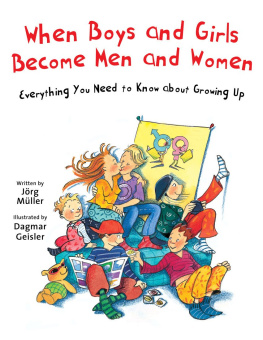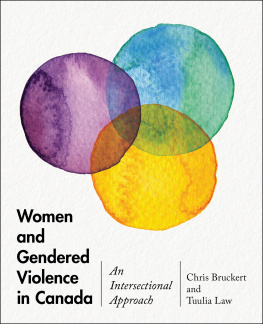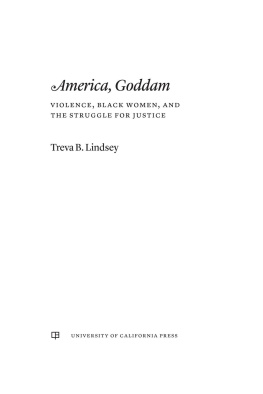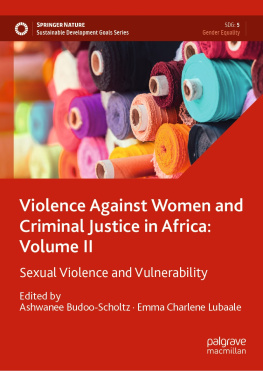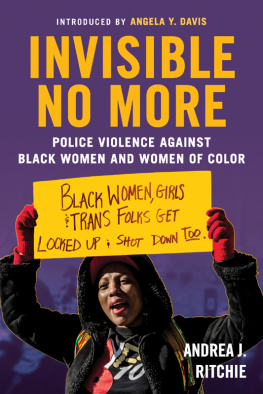This is a ground-breaking book that challenges the VAWG prevention and response orthodoxy. Evidence from the online-surveys, field work and document reviews are used to build a VAWG Prevention and Response Framework that can be adapted and applied across sectors, in both development and humanitarian emergency contexts. Case studies from across the world provide detailed examples of what works, focusing too on what does not and the blinkered gender-blind approaches that are too often applied.
Maureen Leah Chirwa, Health Systems Research and Management Specialist, founder of a woman established research firm, Prime Health Consulting and Services in Malawi
PREVENTION OF VIOLENCE AGAINST WOMEN AND GIRLS
Prevention of Violence Against Women and Girls argues that women and girls are vulnerable across all areas of society, and that therefore a commitment to end violence against women and girls needs to be embedded into all development programmes, regardless of sectorial focus.
This book presents an innovative framework for sensitisation and action across development programmes, based on emerging best practices and lessons learnt, and illustrated through a number of country contexts and a range of programmes. Overall, it argues that SDG 5 can only be achieved with a systematic model for mainstreaming an end to violence against women and girls, no matter what the priorities of the particular development programme might be. Demonstrating how the approach can be applied across contexts, the authors explore cases from the energy sector, health and humanitarian intervention, and from countries as varied as South Sudan, Myanmar, Rwanda, Nepal, and Kenya.
Drawing on nearly three decades of experience working on gender, health, and violence against women programmes as both practitioners and academics, the authors present key lessons which can be used by students, researchers, and practitioners alike.
Tamsin Bradley is a social anthropologist and applied researcher who has worked for over 20 years to end violence against women and girls by researching evidence around what works to end it. She is currently Professor of International Development at the University of Portsmouth and has projects across South Asia and Africa. She has published four monographs, two edited volumes, and many journal articles.
Janet Gruber is a social anthropologist, a development practitioner, and academic. In a career spanning 25 years she has worked on VAWG prevention and response, gender equality, health and rights, and access to justice. Janet has worked in humanitarian emergencies, in conflict and fragile state environments, and in development settings. Janet has a PhD from Cambridge University and is currently Gibbs Research Fellow at Newnham College, Cambridge. Publications include book chapters and journal articles on Mainstreaming of VAWG prevention, HIV & AIDS in conflict and fragile states, refugee return, and gender equality.
Rethinking Development
Rethinking Development offers accessible and thought-provoking overviews of contemporary topics in international development and aid. Providing original empirical and analytical insights, the books in this series push thinking in new directions by challenging current conceptualizations and developing new ones.
This is a dynamic and inspiring series for all those engaged with todays debates surrounding development issues, whether they be students, scholars, policy makers and practitioners internationally. These interdisciplinary books provide an invaluable resource for discussion in advanced undergraduate and postgraduate courses in development studies as well as in anthropology, economics, politics, geography, media studies and sociology.
Southern-Led Development Finance
Solutions from the Global South
Edited by Diana Barrowclough, Kevin P. Gallagher and Richard Kozul-Wright
Introducing Forced Migration
Patricia Hynes
Mobile Technology and Social Transformations
Access to Knowledge in Global Contexts
Edited by Stefanie Felsberger and Ramesh Subramanian
Prevention of Violence Against Women and Girls
Mainstreaming in Development Programmes
Tamsin Bradley and Janet Gruber
For more information about this series, please visit: www.routledge.com/Rethinking-Development/book-series/RDVPT
First published 2022
by Routledge
2 Park Square, Milton Park, Abingdon, Oxon OX14 4RN
and by Routledge
605 Third Avenue, New York, NY 10158
Routledge is an imprint of the Taylor & Francis Group, an informa business
2022 Tamsin Bradley and Janet Gruber
The right of Tamsin Bradley and Janet Gruber to be identified as authors of this work has been asserted by them in accordance with sections 77 and 78 of the Copyright, Designs and Patents Act 1988.
All rights reserved. No part of this book may be reprinted or reproduced or utilised in any form or by any electronic, mechanical, or other means, now known or hereafter invented, including photocopying and recording, or in any information storage or retrieval system, without permission in writing from the publishers.
Trademark notice: Product or corporate names may be trademarks or registered trademarks, and are used only for identification and explanation without intent to infringe.
British Library Cataloguing-in-Publication Data
A catalogue record for this book is available from the British Library
Library of Congress Cataloging-in-Publication Data
Names: Bradley, Tamsin, author. | Gruber, Janet, author.
Title: Prevention of violence against women and girls : mainstreaming in development programmes / Tamsin Bradley and Janet Gruber.
Description: 1 Edition. | New York : Routledge, 2021. | Series: Rethinking development | Includes bibliographical references and index.
Subjects: LCSH: WomenViolence against. | GirlsViolence against. | Gender mainstreaming.
Classification: LCC HV6250.4.W65 B723 2021 (print) | LCC HV6250.4.W65 (ebook) | DDC 363.32082dc23
LC record available at https://lccn.loc.gov/2021010865
LC ebook record available at https://lccn.loc.gov/2021010866
ISBN: 978-0-367-23588-8 (hbk)
ISBN: 978-0-367-23584-0 (pbk)
ISBN: 978-0-429-28060-3 (ebk)
DOI: 10.4324/9780429280603
Typeset in Bembo
by codeMantra
For dearest Ottilie, in the hope that she and all other girls will grow into women in a world free from violence
To Megan I am already so proud of you, keep pushing for what you know is right.
CONTENTS
List of figures
List of tables
Acknowledgements
Introduction
2 VAWG mainstreaming a framework for action
3 Women, internal displacement, and violence in Nepal and Myanmar
4 Focus on Vawg in humanitarian emergencies: the scale of the problem and responses
5 VAWG prevention and response in humanitarian emergencies: an overview of current approaches and gaps in knowledge
6 VAWG and conflict: focus on women, peace, and security
7 The rule of law, womens rights, and VAWG prevention and response
8 How to mainstream VAWG across sectors: two examples from modern slavery and sustainable energy programming
9 Funding for VAWG prevention and response: gaps and opportunities
Conclusion: the Covid-19 pandemic and implications for VAWG prevention and response and gender equality
2.1 Intervention and mechanism process




